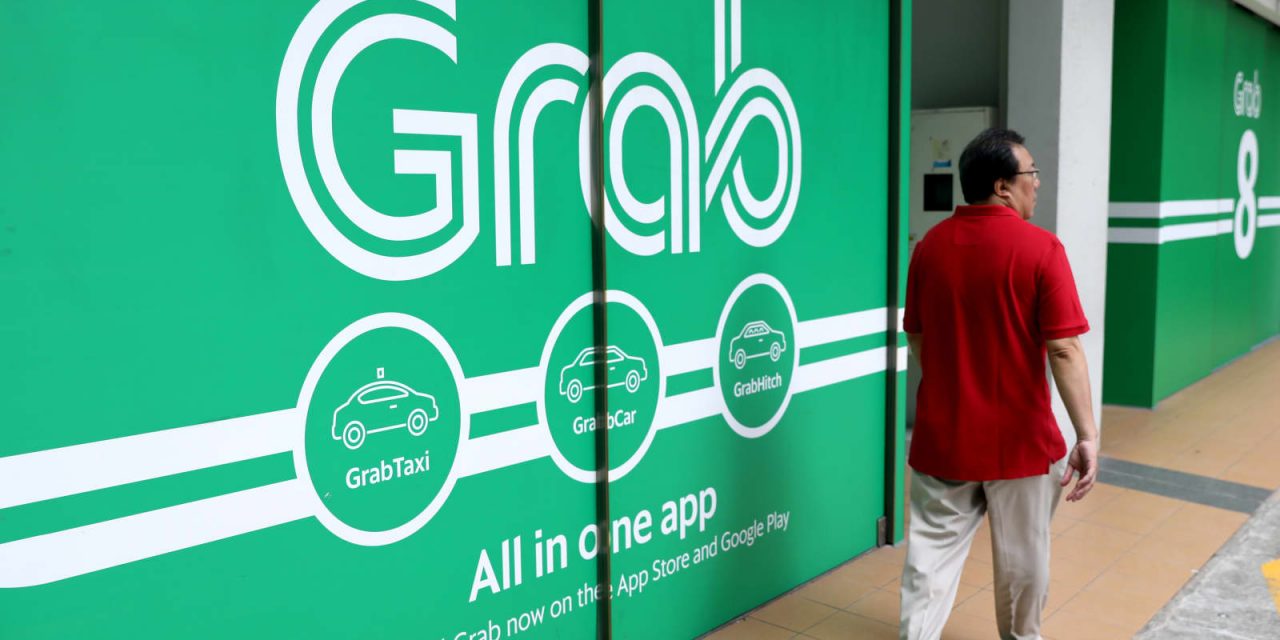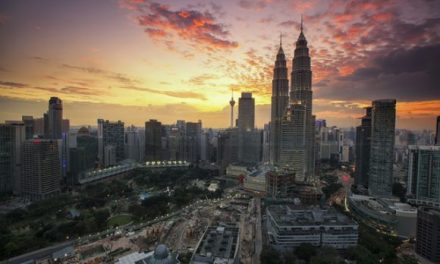Grab to go public in world’s biggest US$40bil SPAC merger
Grab Holdings, the largest ride-hailing and food delivery firm in Southeast Asia, clinched a merger on Tuesday with special-purpose acquisition company Altimeter Growth Corp securing a valuation of nearly US$40 billion and paving the way for a coveted U.S. listing. As part of Singapore-based Grab’s agreement with the SPAC backed by Altimeter Capital, investors such as Temasek Holdings, BlackRock, Fidelity International, Abu Dhabi’s Mubadala and Malaysia’s Permodalan Nasional Bhd will participate in a $4 billion private investment in public equity offering. Funds managed by Altimeter Capital will lead the investment with $750 million. Grab said its decision to become a public company was driven by a strong financial performance last year. Altimeter Growth and Grab will become fully-owned subsidiaries of a new holding company, which is expected to be valued at $39.6 billion on an initial proforma equity basis. The deals, which have been approved by the boards of both Grab and Altimeter Growth, are aimed to close by July. Grab’s agreed transaction will surpass electric vehicle maker Lucid Motors’ $24 billion deal struck with a SPAC in February. (The Star)
Health DG cautions against complacency during Ramadan
The public is reminded, in view of the Covid-19 pandemic, not to be complacent during Ramadan especially through social activities such as visiting the homes of friends and relatives as well as travelling interstate or attending mass rallies. Health director-general, Tan Sri Dr Noor Hisham Abdullah has advised the community to be vigilant and avoid crowded areas and close-range chatting as the number of daily Covid-19 cases is still unstable in some states. “These include leaving the house for non-essential needs, attending large gatherings or breaking of fast get-togethers, and being in crowded Ramadan bazaars. The MOH (Ministry of Health) is concerned that such uncontrolled activities will result in an increase in Covid-19 infections in the community,” he said. Dr Noor Hisham said the community was reminded to practise four food safety keys to ensure clean and safe food. This includes using fresh raw materials and clean water, using separate equipment for raw food to avoid contamination, cooking food properly and eating within a period not exceeding four hours, and storing food at an appropriate temperature and not exceeding three days in the refrigerator. (Malay Mail)
HLIB foresees continuous, steady recovery for Malaysian REITs
Hong Leong Investment Bank (HLIB) Research has maintained its “neutral” rating of Malaysian real estate investment trusts (REITs) following relaxation of the movement control order (MCO). HLIB said REIT companies in its universe are estimated to have an average yield of 5.1% for financial year 2021 (FY21). Progressive relaxation of interstate travel restrictions would aid the recovery in hotel occupancy rates, with pent-up consumption and festive season spending (Hari Raya) aided by easing of restrictions contributing to a sustained improvement in the retail sector. The ongoing 10% electricity tariff rebate (until June 2021) would aid in reducing operating cost. “We believe the office and industrial segments will continue to remain stable,” said HLIB analyst Farah Diyana Kamaluddin. She said as the economy slowly recovers, in addition to the vaccine roll-out plan, she expects more employees to gradually return to the office with fewer working from home (WFH). Industrial REITs have been steady all along, backed by exceptional growth of the e-commerce sector which has created a strong tailwind for warehousing and logistics companies. (The Edge)
MRT Corp eyes up to 30% private funding for MRT3
Mass Rapid Transit Corp Sdn Bhd (MRT Corp) is considering private funding option to finance some 10% to 30% of the total cost needed to develop the MRT Line 3 (MRT3) project. Its CEO Datuk Mohd Zarif Hashim said the effort is a part of an effort to ease the government’s financial burden by leveraging a hybrid financing model with industry players. He also noted that the tender offer for the MRT3 project is scheduled to be opened in August this year. Despite not disclosing the total cost of the project, Mohd Zarif said it was “not far off” from the speculative figures reported by the media, as well as estimates submitted by analysts last week. Analysts estimated the MRT3 project cost to range between RM20 billion and RM30 billion. Following the open tender, MRT Corp aims to complete the awarding process by the end of this year to enable construction work to begin in early 2022. He, however, did not reveal the exact tender format, but noted it would be “a different kind of tender award exercise”. The MRT3 project is expected to take 10 years to complete instead of the previous projection of seven years. The CEO said the project will involve about 30 stations and 10 interchanges, covering the parameters of Kuala Lumpur. The overall distance of the MRT3 rail line is estimated at around 50km, 40% of which would be underground. (The Malaysian Reserve)
Singapore’s Pine Labs acquires Malaysia-based e-commerce platform Fave in US$45m deal
Singapore-incorporated merchant commerce platform Pine Labs has acquired e-commerce and fintech firm Fave in a cash and equity deal valued at over $45 million, for joint global expansion. In a joint statement, the companies said Fave’s investors will receive an all-cash payout, while founders and key Fave employees will receive both cash and shares of Pine Labs. Fave counts Sequoia India, China-based SIG Asia Investments and Indonesian venture capital firm Venturra Capital as its investors. Pine Labs became an investor in Fave last July. Fave operates in Malaysia, Singapore and Indonesia, after acquiring Groupon Inc’s businesses in those markets in 2016 and 2017. It will be launching in India this year. (The Edge)

London beats HK, NY to become ‘super prime’ property hub
London beat Hong Kong and New York to become the most popular city to buy ultra-luxurious residential property last year despite Brexit and Covid. The combined value of super prime properties sold in the British capital climbed in 2020 to US$3.7 billion, according to data gathered by estate agency Knight Frank. Hong Kong lost the top spot to London after sales slid to US$3.2 billion for luxury real estate, defined as property worth US$10 million or more. Los Angeles sales meanwhile jumped to US$2.6 billion, earning it third place. New York took fourth place with total sales of US$2.2 billion. “London’s super prime residential market shrugged off Brexit and even looked through the pandemic – confirming the UK capital as the world’s leading wealth destination,” said Liam Bailey, global head of research at Knight Frank. “After five years of price falls, the capital is set for a reset and the latest numbers from Knight Frank’s super-prime data confirm that London is on top of the world.” (Free Malaysia Today)





